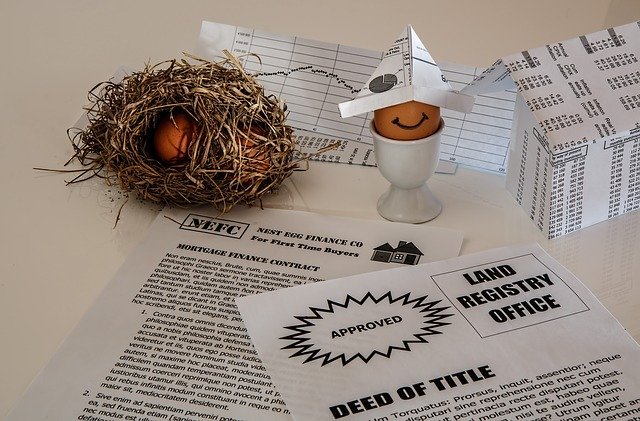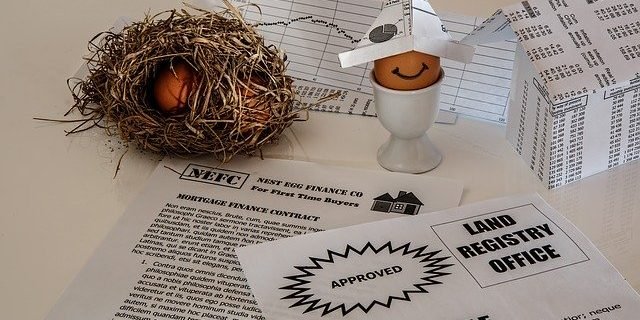It can be overwhelming to take on a home mortgage. It’s best to arm yourself with knowledge prior to going to the right decisions. The following paragraphs are full of information will head you the right way when it comes to home loans.
Don’t borrow the maximum allowed. You are the decider. The bank may be willing to give you more than you can comfortably afford. You want to enjoy your home. Consider your life, how your money is spent, and what you can afford and stay comfortable.
Don’t be tempted to borrow the maximum amount for which you qualify for. Consider your income and what you need to be able to afford.
Lower your debt and do not take out new debts as you are working your way through the mortgage process. When debt is low, the mortgage offers will be greater. If you are carrying too much debt, lenders may just turn you away. Carrying a lot of debt can also increase the rate of your mortgage.
You must have a stable work history that shows how long you’ve been working if you wish to get a home mortgage. A two-year work history in order to approve any loan. Changing jobs frequently can also disqualify you from a mortgage. You should never want to quit your job during the loan application process.
Always talk openly with your mortgage lender, no matter your situation. Don’t give up just because your finances are dire – your lender will want to work with you, if you talk to them about the situation. It can never hurt to speak with your lender to see what they can do for you.
If you are underwater on your home and have been unable to refinance, consider giving it another try. The HARP has been rewritten to allow homeowners to refinance their home regardless of how underwater they are. Speak to your mortgage lender to find out if this program would be of benefit to you. If your lender says no, move on to one who will.
You are going to have to put down an initial payment. In today’s world almost all mortgage providers will require down payments. You should find out how much you need to put down early on, so there are no surprises later.
You are sure to need to come up with a down an initial payment. Some lenders used to approve loans without a payment up front, but now they typically require it. Ask how much of a down payment has to be before you send in your application.
Do not slip into depression if you are denied a loan. Instead, go to a different lender to apply for mortgages. Every lender has their own rules as to who they will loan to. Therefore, it may be wise to apply with more than one lender.
Your mortgage application can be rejected because of any new changes to your finances. You should have a secure job before applying for a loan.
If your mortgage is for thirty years, making additional payments can help you pay it off more quickly. This will help pay down principal. If you pay an additional amount on a routine basis, your can be paid off faster and your total interest liability can be a lot less.
You should plan to pay no more than 30 percent of your gross monthly income in mortgage payments. Paying more than this can cause financial problems in the future. You will be able to budget in better with manageable payments.
Do a little research on the mortgage lender you may be working with before you sign anything. Do not put all of your trust in the mortgage lender. Ask friends, family, and coworkers if they have heard of them. Search the Internet. Go to the BBB website and look up the company. By knowing as much as possible about the mortgage process, you can possibly save lots of money.
Make certain your credit is good order before applying for a mortgage. Lenders check your credit history carefully to determine if you are any sort of risk. If you have bad credit, do what you must to repair it so that you avoid having the application denied.
An ARM is an adjustable mortgage rate. These don’t expire when the term is up. However, the rate is going to be adjusted to match the rate that they’re working with at the time. This is risky because you may end up paying more interest.
There are several good government programs for first-time home buyers.
Think about other mortgage options besides banks. For instance, you may wish to go to family for things like your down payment. You may also look into credit unions that tend to offer terrific rates. When you’re shopping for a loan, look at all of your choices.
Educate yourself on the tax history of any prospective property. You have to understand how much your property taxes will increase over time.
Know how much you will be required to pay in fees prior to signing any agreement for the mortgage. There are itemized costs for closing, as well as commissions and miscellaneous charges you need to be aware of. These can possibly be negotiated with the mortgage lender or seller.

Make extra monthly payments whenever possible. This will pay down principal.
Learn about fees and cost that are typically associated with a home mortgage. There are so many little costs to consider. It really does feel like a major challenge. However, with the proper legwork, you can both talk the talk and walk the walk.
This ought to encompass closing costs as well as any other fees. While a lot of companies will tell you everything up front about what’s owed, some may hide charges that you won’t know about until it’s too late.
A good credit score is important for getting the best mortgage rate in our current tight lending market. Check your credit report from the 3 bureaus to make sure it is accurate. In general terms, expect to have a more difficult time getting approved with a score below 620.
The interest rate determines how much you will have have a direct effect on your payments. Know about the rates and how increases or decreases affect your monthly payment. You could pay more than you can afford if you don’t pay attention.
Consider your personal comfort level when it comes to how much you want to spend on a home before talking to a mortgage company. Your lender might approve you for a greater amount than you initially thought you could afford, and this provides some wiggle room when it comes to your home search. Nevertheless, remember to not overextend yourself. Doing this might mean serious financial troubles later in life.
If you are struggling to pay your mortgage, then find assistance. Counseling is a good way to start if you cannot stay on top of your monthly payments or are having difficultly affording the minimum amount.HUD will provide counseling agencies throughout the nation.These counselors offer free advice that will show you how to prevent your home from being foreclosed. Call your local HUD or look on their website to locate one near you.
Getting an approval letter for the mortgage you’re taking out can make the seller get impressed and see that you’re able and ready to buy. It shows that you have already undergone a great deal of financial security and have received approval. But, be sure that your approval letter shows the exact funds to match your offer. If the letter of approval is for more, then it indicates to the seller that you are able to, in fact, pay more.
Do your homework about any potential mortgage lender prior to signing on the bottom line. Do not just take a lender at their word. Look them up on the Internet.Check out lenders at the BBB. You must learn all that you can save money.
You might have to investigate alternative sources as a means of getting a mortgage approval if your credit is bad, thin or nonexistent. One years worth of financial records will be helpful. That way, you have proof that you pay your bills on time.
Credit Cards
The best negotiating rule for an interest rate is to look at multiple lenders. Many people are surprised to learn that some banks, and especially those that are not Internet-only banks, offer rates that beat those of larger banks. If you find better terms, bring it up to your current mortgage lender to see if they will negotiate with you.
Lower the amount of open credit cards you carry prior to purchasing a house. Having too many credit cards can make you finances.
There is no need to take drastic steps if you receive a denial, just seek a different lender. Keep everything just as it is. It may not be your fault; some lenders are just more picky than others. You may just find that the next lender accepts you readily.
Learn what the costs and fees that are associated with your mortgage. There are a lot of things that can go wrong when you’re trying to close on a home. It can make you feel very daunting. But with some homework, this will better prepare you for the process.
Check with the Better Business Bureau before choosing a mortgage broker. There are many predators out there that could try tricking you into higher costs, fees, and interest rates. Be wary of brokers who are asking you to pay a very high fee or a lot of points.
There is so much information out there about home mortgages. Armed with the knowledge you’ve gained from this article, you should be in a much better place than you were a few moments ago. Remember this advice when you are applying for a home loan so that you can make the best choices.
Be wary about loans that come with penalties for prepayment. It is simply unnecessary to forfeit this right if you have a decent credit score. Having the ability to pre-pay allows you to save money on interest. This is not something you want to take lightly.






